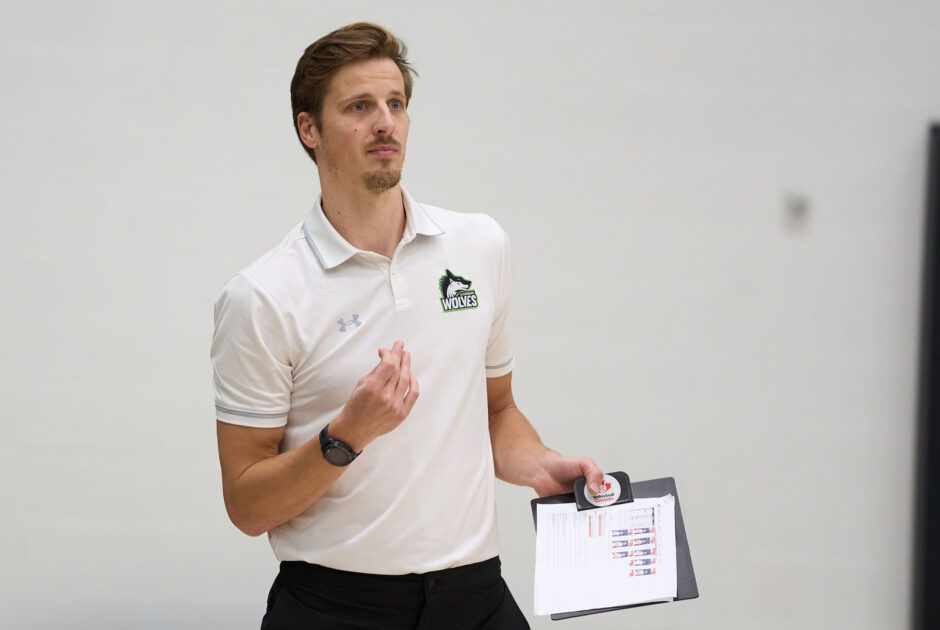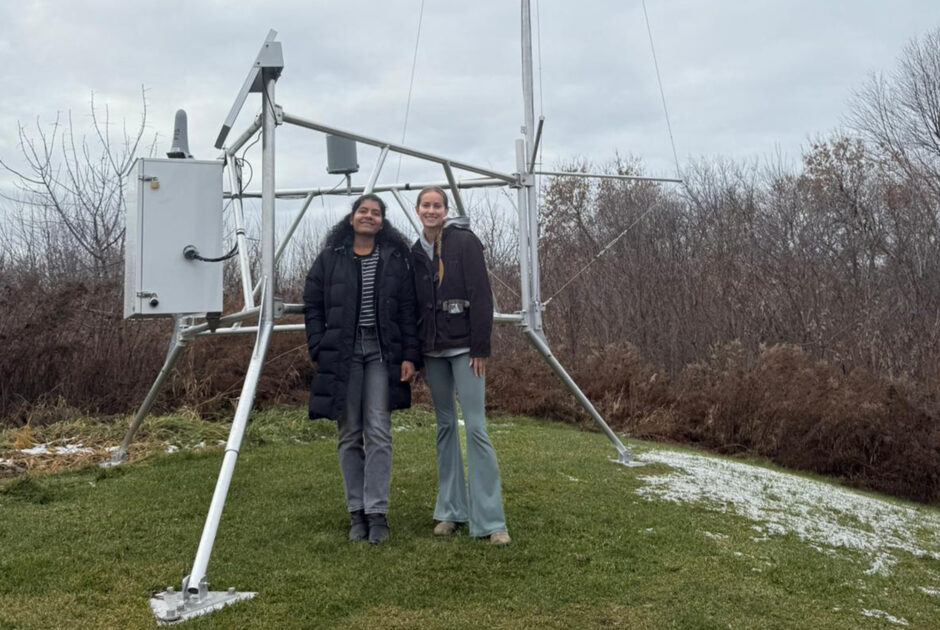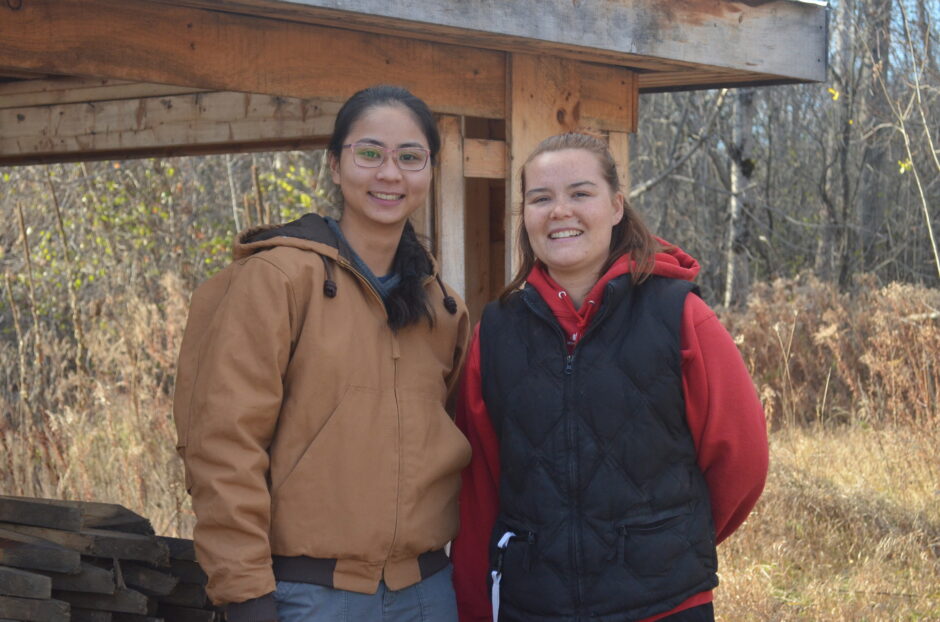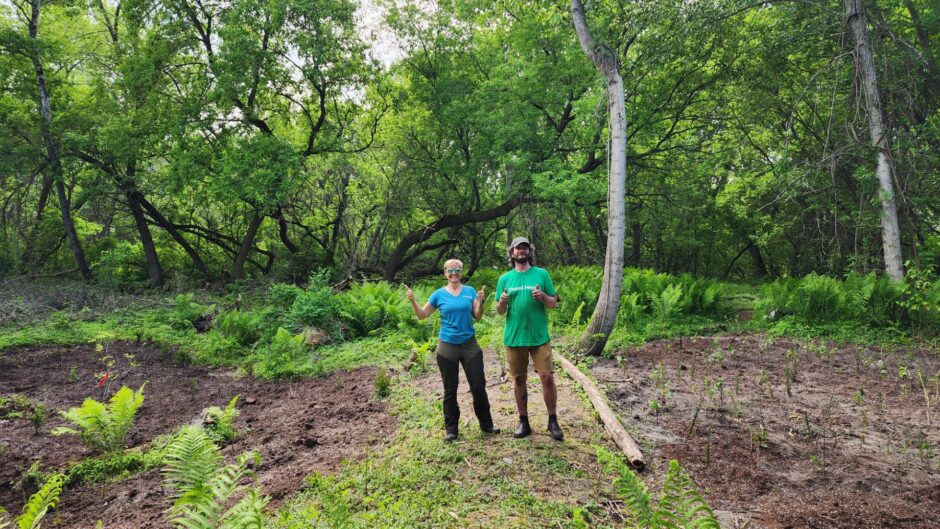Students embrace land-based learning during Truth and Reconciliation Week
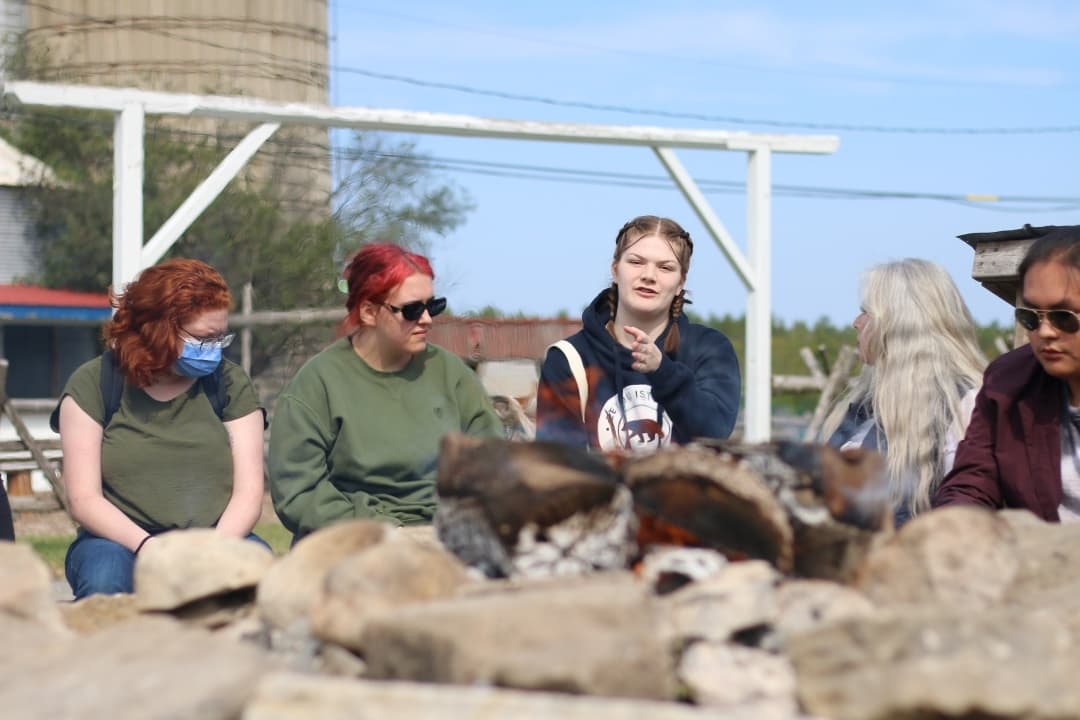
Orange rocks stood their ground all over, reminders of what the week embraced: strength, courage, fortitude, but most of all, remembrance of the children of Indigenous communities all over this land.
Each rock is a reminder of a child who never made it out of the residential school system. A reminder of the trauma left behind.
The cool temperature on the Tuesday morning of Truth and Reconciliation Week did not chill the inclination to get out on the land and share culture, stories and great food.
Nineteen students from the Aboriginal studies program ventured out to Madahoki Farm for a land-based learning day.
Madahoki Farm, which is located just southwest of Algonquin College on Hunt Club Road, offers land-based cultural and culinary programming, event space, powwow grounds, hiking trails and a year-round riding arena.
After over 20 years of cultural programming on Victoria Island, Indigenous Experiences acquired the 164-acre property, formerly the Lone Star Ranch.
The farm is the new home for a series of Indigenous events celebrating the seasons: Sīgwan (spring), Tagwàgi (autumn) and Pibòn (winter) and the annual Summer Solstice Indigenous Festival formerly held at Vincent Massey Park.
Madahoki is the year-round home of an Indigenous marketplace that promotes products made by Indigenous makers and artisans as well as the permanent home for a growing herd of endangered Ojibwe Spirit Horses.

Students started the day with teachings and a song with the cultural director, Awema Tendesi, who welcomed the group with songs, cultural teachings and general farm rules.
“It touched me when he (Tendesi) sang to welcome us,” said Aboriginal studies student, Anika Lachance. “It made me tear up a bit.”
The autumn sun brought a gorgeous day, with the group moving outside for teachings about the Ojibwe Spirit Horses, followed by free time to roam the farm, see the horses and other animals and walk the trails.
“I have a special connection to the land and to the animals,” said Dawson Lemire, an Aboriginal studies student. “It’s been a great day outside of class.”
A traditional lunch of soup and bison meatballs with wild rice and balsamic reduction was served by the catering staff while the culture experience team lit a fire.
The eclectic group of students bonded by the fire before learning protocol and how to enter a teepee.

The Aboriginal studies program has been missing these types of outings since the beginning of COVID-19.
“Land-based learning trips are integral, not only to share and learn culture, but to build bonds and create safe spaces for learning,” said Marina Westbrook, program director of Aboriginal studies.
Madahoki Farm has a strong connection with Algonquin College. Tendesi, who has been speaking at events since the age of eight, attended the college in the Aboriginal studies program.
“The course opened my view to Indigenous issues in North America, where it stems from, how it affects Indigenous people and how/what steps I can take to fix these issues at home as well as off-reserve,” said Tendesi.
In June, 95 Algonquin College volunteers helped the farm prepare for the Summer Solstice Festival, doing physical labour such as laying mulch, raking the heritage trail and making new bird feeders and chicken coops to prepare the grounds to receive thousands of visitors throughout that week.
“The school trips and tours, in my opinion, are the first baby step when it comes to reconciliation. Coming and learning about the culture is a very good starting-off point. But I do stress that this is in fact a tiny first step towards reconciliation,” said Tendesi.
“We encourage everyone who visits the farm to go out and do their own research about more complex Indigenous issues as well as go out and create those relationships with Indigenous communities and Indigenous organizations in their area.”






